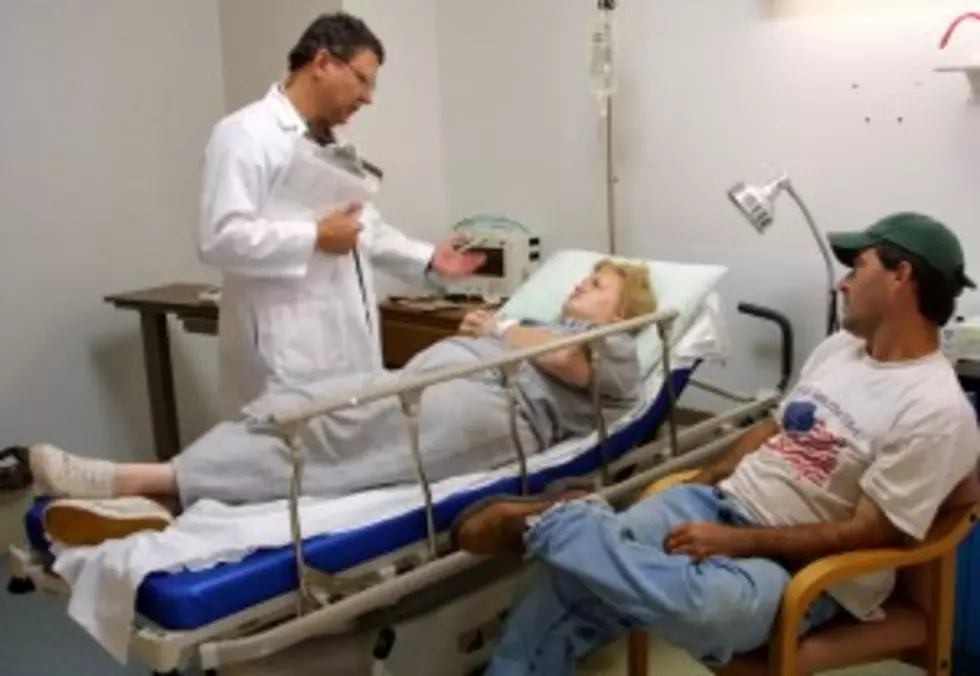
Health Officials Give Tips On Ticks And Mosquitoes
The Barry-Eaton District Health Department has some tips on how to deal with mosquitoes and ticks this summer
Summer Bites: Ticks and Mosquitoes
Ticks and mosquitoes are two of nature’s summertime irritations, and unfortunately sometimes those bites can become more serious. Residents should know how to protect themselves from illnesses spread by ticks and mosquitoes.
Lyme disease is caused by a bacteria and is spread through the bite of infected blacklegged ticks (also known as the deer tick). In Michigan, this tick is found in the counties along Lake Michigan and in the western Upper Peninsula. However, this tick is moving east from Lake Michigan, and Barry County is known to be a risk area for Lyme disease. Other types of ticks are commonly found in Michigan as well and can spread other tick-borne diseases to people.
Ticks can attach to any part of the human body but are often found in hard-to-see areas such as the groin, armpits, and scalp. In most cases, the tick must be attached for 36-48 hours or more before Lyme disease can be transmitted. Therefore, a full-body check to find and remove any ticks after spending time outdoors is important.
To remove an attached tick, use the following guidelines:
- Use fine-tipped tweezers to grasp the tick as close to the skin's surface as possible
- Pull upward with steady, even pressure. Don't twist or jerk the tick; this can cause the mouth-parts to break off and remain in the skin
- If this happens, remove the mouth-parts with tweezers. If you are unable to remove the mouth easily with clean tweezers, leave it alone and let the skin heal
- After removing the tick, clean the bite area and your hands with rubbing alcohol, an iodine scrub, or soap and water
- Dispose of a live tick by submersing it in rubbing alcohol, placing it in a sealed bag/container, wrapping it tightly in tape, or flushing it down the toilet. Never crush a tick with your fingers.
If you develop a rash or fever within several weeks of removing a tick, see your doctor. Be sure to tell the doctor about your recent tick bite, when the bite occurred, and where you most likely came into contact with the tick. Typical symptoms of Lyme disease include fever, headache, and fatigue, and many people will get a characteristic “bull’s-eye” skin rash. If left untreated, infection can spread to joints, the heart, and the nervous system. Most cases of Lyme disease can be treated successfully with a few weeks of antibiotics.
To avoid being bitten by a tick, there are several ways you can protect yourself:
- Wear light-colored clothing so ticks can be spotted more easily and removed before they bite
- To keep ticks from reaching your skin, wear long-sleeved shirts and tuck pants into socks or boot tops. Wear boots or shoes instead of sandals, especially in areas by brush or long grass
- Apply insect repellents containing DEET to clothes and exposed skin, and apply a permethrin product, such as a spray, to clothes (kills ticks on contact). This can lower the risk of tick bites
- Bathe or shower as soon as possible after coming indoors (preferably within two hours) to wash off and more easily find ticks that are crawling on you
- Conduct a full-body tick check using a hand-held or full-length mirror to view all parts of your body upon return from tick-infested areas. Parents should check their children for ticks under the arms, in and around the ears, inside the belly button, behind the knees, between the legs, around the waist, and especially in their hair
- Examine gear and pets. Ticks can ride into the home on clothing and pets, and then attach to a person later, so carefully examine pets, coats, and day packs
- Tumble clothes in a dryer on high heat for an hour to kill remaining ticks. Shorter drying times may also be effective, especially if the clothing is not wet
West Nile virus is spread to people by the bite of an infected mosquito. A mosquito becomes infected by biting a bird that has the virus. Most people who are infected with West Nile virus do not develop any symptoms. About 1 in 5 people who are infected will develop a fever with other symptoms such as headache, body aches, joint pains, vomiting, diarrhea, or rash. Most people with this type of West Nile virus disease recover completely, but fatigue and weakness can last for weeks or months. Less than 1% of people who are infected will develop a serious neurologic illness. If you think that you may have been exposed to the virus, seek medical care.
Prevention is the best and most effective way to deal with West Nile virus. To reduce your exposure to mosquitos, follow these guidelines:
- Reduce time outdoors, especially at dusk through dawn, during mosquito seasons
- Wear light weight long sleeves and long pants if you are outdoors
- If outdoors, apply insect repellent containing DEET or another active ingredient to exposed skin or clothing. Be sure to follow the instructions on the product. For more information about effective repellents, visit www.cdc.gov/westnile/faq/repellent.html
- Maintain window and door screens to keep mosquitoes out of buildings
- Drain standing water in the yard, as mosquitoes may breed there. Empty standing water from flower pot bases, pet bowls, clogged rain gutters, swimming pool covers, discarded tires, buckets, barrels, cans, etc
For more information on Lyme disease and West Nile virus, please visit the State of Michigan’s website at www.michigan.gov/emergingdiseases/ or the Barry-Eaton District Health Department’s website at www.barryeatonhealth.org. If you would like to submit a live tick for identification by the Michigan Department of Agriculture and Rural Development, go to http://1.usa.gov/1Ij9MQS.


